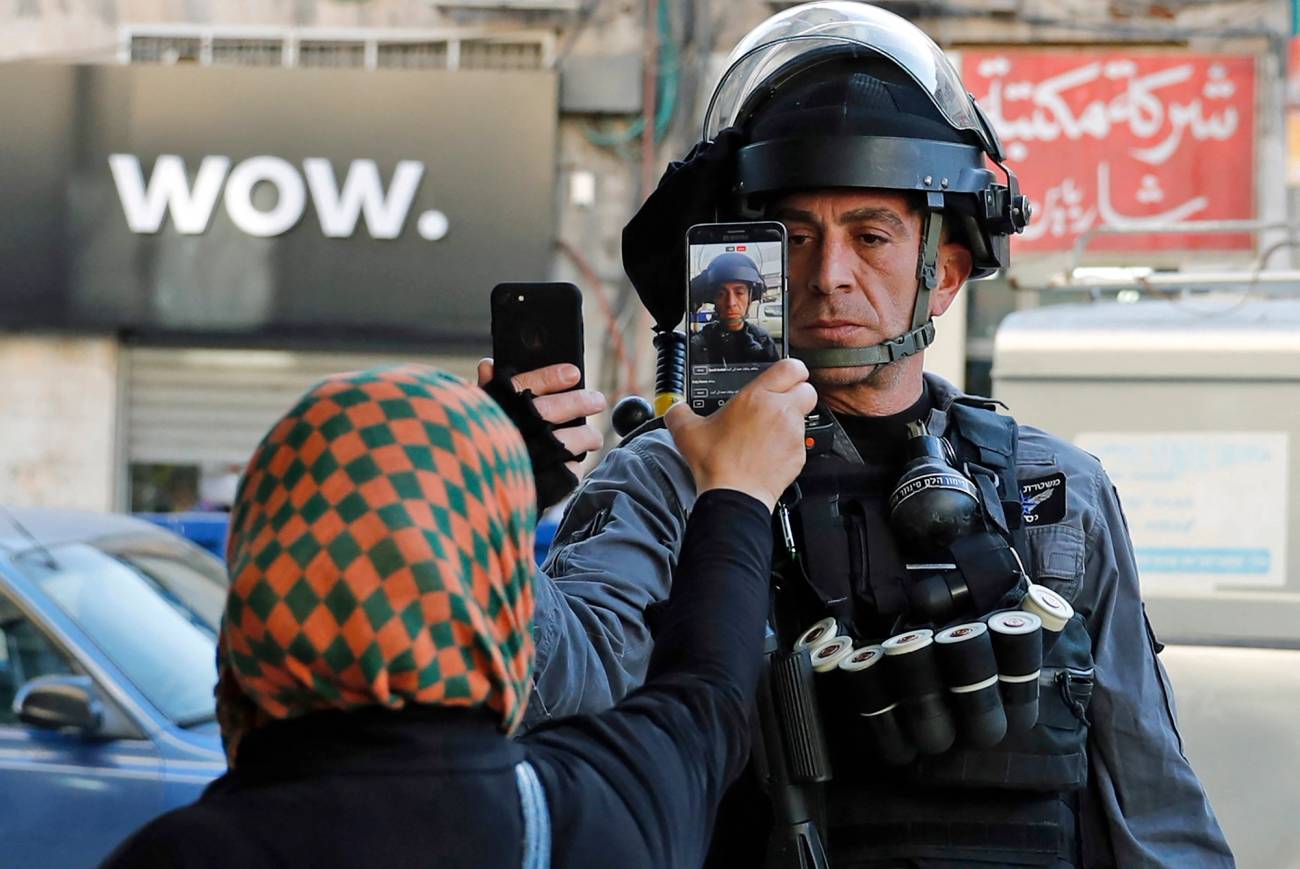Take Social Media Seriously
Dig in, or get out

AHMAD GHARABLI/AFP via Getty Images

AHMAD GHARABLI/AFP via Getty Images

AHMAD GHARABLI/AFP via Getty Images
I committed a red wedding of sorts on my social media a few days after Oct. 7. I’d been following a lot of people whose views I detested, whom I never hung out with, and in some cases didn’t even particularly like, out of a vague commitment to social pleasantries. But, stewing in anger as I watched them rain internet blows upon Israel for its “war crimes” two days after terrorists murdered 1,400 innocent people, I realized that I’m actually just fine chopping these people out of my online life. It’s certainly no ruder than defending mass slaughter.
When I shared this with a friend from college, who had been spending the past three weeks picking fights with the anti-Zionists on his timeline at considerable expense to his sanity, he told me that he kept these people around because he thought the fights were worth having. I wish I agreed, but I don’t anymore. What I’ve found is that, even if you can move the needle on one tiny subtopic, it’s way too unlikely that you’ll meaningfully change someone’s mind to be worth the effort and heartache.
For a lot of people, this issue is not just logic, facts, and history—even though for many of them, who don’t have any social, ethnic, religious, or personal connection to this small piece of land where they have never stepped a toe, it should be. For them, it’s political tribalism and social signaling. The best possible outcome of engaging with them is that you’ll spend 45 minutes of your life dredging up population statistics to convince someone that Israel isn’t actually committing mass genocide in Gaza, like it says in the infographic they just posted, they’ll begrudgingly delete it, say “thank you for discussing with me,” and “hope that you’re holding up OK,” and then three days later they’ll reemerge with some different nonsense so the cycle can begin anew. It’s an exhausting game of Instagram whack-a-mole, and the person who will emerge the most tired is you.
But what my friend and I did ultimately agree on is that there is a subsection of people with whom it can be worth the toll of engaging—the rare souls operating in good faith. Maybe they’re your sheltered progressive friend who comes to all your Shabbats but couldn’t name three Israeli prime ministers; a “cultural Jew” from the Upper West Side posting JVP graphics but feeling guilty at the thought of their grandparents following them on Instagram from heaven; a high school friend who meant well but got a little too swept up in the #FreePalestine TikTok algorithm. Those are conversations worth having. Especially, especially offline.
But online, too. Nobody is coming to stand up for Israel, or the welfare of the Jews, on your behalf. The overwhelming anti-Israel cultural tide is not going to suddenly ebb on its own. Setting aside TikTok—where the Chinese Communist Party literally has its fingers on the scales, intentionally flooding the site with pro-Palestinian and antisemitic propaganda—even Instagram has devolved into a battlefield-slash-cesspool of Free Palestine hashtags, statistics from the “Gazan Health Ministry,” and sleek infographics about Israel’s affinity for apartheid, genocide, and ethnic cleansing, among other evils.
If you’re going to stay in these spaces, stay and fight. If there’s an element you feel is missing from the prevailing online conversation, stop waiting for a noble defender to swoop in and share your thoughts. Find the fortitude to stand up for the values you know to be right, instead of watching with alarm from afar hoping that things will miraculously change. I spent 30 minutes on the day of the “hospital bombing” urging everyone who posted a hasty Instagram story about Israel’s supposed war crimes to take it down and wait for more evidence; everyone I approached listened to me, and some even thanked me afterward.
Another thing that I have been saying to some of these people, which may or may not be useful to you: “If Israel, the West Bank, and Gaza all got wiped off the map tomorrow, I’m sure you would be horrified. But your life would not change. Your world would keep turning exactly as normal. That is not the case for me.” That statement doesn’t—and is not intended to—radically alter their views about matters of Israeli diplomacy, policy, or military strategy. But it can encourage a well-intentioned person to find the humility and the empathy to “check their privilege” before wading into an issue to which they have no claim. It can also convey something that lies at the emotional core of this conversation, which is that a lot of us are hurting. It’s hard to see your friends muddy the waters about an issue that already brings you genuine pain. Right now, the people who will hear this in good faith are the ones worth talking to. Not everyone’s heart has been lost to an algorithm.
As for those who have, you know what you have to do. If it helps, spend a little time thinking about your past relationship to these people, these institutions, and the echo chamber soliloquies that pass for online dialogues. Can you tell yourself honestly that this wave of vitriol came as a total surprise, and that you took every opportunity to do something about it when it nipped at the boundaries of your world? I know I can’t. But what should be a small comfort is that there are new communities forming, especially for Jews online, which have been more vocal and more unified than ever before. You might lose a few so-called friends, but you might also find some better ones, too.
Ani Wilcenski is Tablet’s audience editor.